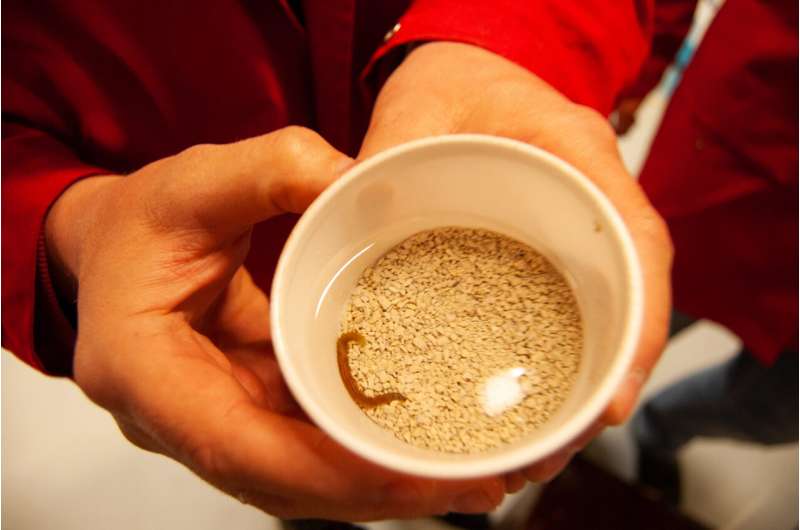This article has been reviewed according to Science X's editorial process and policies. Editors have highlighted the following attributes while ensuring the content's credibility:
fact-checked
trusted source
proofread
Is it safe to feed farmed salmon with bristle worms raised on fish excrement?

In Norway it is currently prohibited to provide animals with feed derived from the same animals' own "value chain." But this legislation is not based on science.
Researchers have previously demonstrated that bristle worms can flourish and grow on the sludge derived from farmed fish. Now there is a debate going on about whether these same bristle worms can be fed to farmed salmon.
But how safe is it really to allow salmon to feed on bristle worms that have been feeding on excrement sludge derived from the salmon themselves? A research team has been looking into this as part of a project called SecureFeed.
"We're analyzing data that can tell us how safe this is in relation to contamination by bacteria and viruses, as well as prion diseases resulting from cannibalism," says researcher Andreas Hagemann of the Norwegian science institute SINTEF. "We're also looking into the accumulation of heavy metals, environmental toxins and drug residues," he says.
Challenging the regulations
Hagemann describes his team's research as a milestone on the road towards a more sustainable, circular value chain operating in the aquaculture sector.
It is currently prohibited to provide animals with feed derived from the same animals' own value chain.
"EU legislation is not based on science, but on a precautionary principle established following cases involving prion diseases, in particular so-called 'mad cow' disease, that were recorded way back in the 1980s," says Hagemann. "Our aim is to identify what risks really exist, and to challenge the existing regulations," he says.
Major impact
Any changes to the regulations will have a major impact. Researchers have calculated that bristle worms produced from Norwegian salmon farm sludge may constitute between eight and nine percent of the feed required for the industry to achieve its target of 1 million metric tons of additional salmon production in 2030.
"In 2019, Norwegian salmon farms produced 500,000 [metric] tons of excrement sludge," says Hagemann. In theory, this represents enough raw material to raise about 150,000 [metric tons] of bristle worms," he says.
"The bristle worm will also be a very nutrient-rich feed for farmed salmon," he adds, "because it contains long-chain, polyunsaturated omega-3 fatty acids."
Provided by SINTEF





















